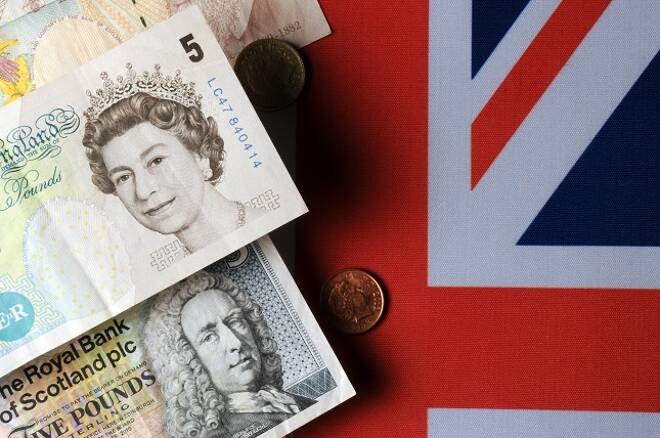Advertisement
Advertisement
Pound Falls Further Against the Dollar
By:
The pound has started the day falling against the US dollar, after making modest gains yesterday, as Markit and the Chartered Institute of Procurement and
The pound has started the day falling against the US dollar, after making modest gains yesterday, as Markit and the Chartered Institute of Procurement and Supply in their latest service industry Purchasing Manager’s Index (PMI), found that in June service expansion weakened to its lowest level for 38 months, the GBP/USD rate is now $1.31, from beginning the morning GMT on $1.33.
After the poor construction PMI figures that were released yesterday, both surveys could be signals that a recession is on the way in the UK, following the turmoil created by ‘Brexit’.
The services Index fell from 53.5 in May to 52.3 in June, whereas activity has risen every month since January 2013, but the index averaged just 52.7 in the second quarter, the weakest of any quarter since the first quarter in 2013.
HSBC Say Brexit Vote a ‘Global Jolt’
HSBC have said that the last situation that a fragile global economy needed was the decision by the UK to leave the European Union (EU), as they believe there is now less scope for quick monetary fixes.
Also, that there is now a clear political dimension, particularly in Europe, but also across the developed world, where populism has taken a grip.
In their global economics quarterly report, the bank argued that even though unemployment has fallen in some economies, most of the populations where this is happening feel that they are not benefiting from the post 2008 crises recovery.
After the leap away from the status quo in the ‘Brexit’ decision, HSBC now predict that the level of global uncertainly will stay high, which will weigh down on economic growth and unemployment.
And while the bank views the western consumer as currently a huge driver of growth, once the boost of low oil prices fades, gains in the future will have to come from higher employment, stronger productivity and improved wage growth.
Evidence of this is still scant HSBC believe, and with inflation for now continuing to surprise on the downside, further stimulus is likely in some countries, as central banks look to absorb the shocks.
The report also revealed that the bank had lowered their global GDP growth projections from 2.3% to 2.2% in 2016 and from 2.6% to 2.3% for 2017, due to weaker investment and exports, particularly in Europe.
Although their global inflation forecasts have risen, propelled by higher oil prices they expect for this year , but HSBC also anticipate that in most countries inflation is likely to be falling again by second half of 2017.
Volume of Retail Trade up by 0.4% in both Euro Area and the EU
The retail sector across the euro area and the EU has been boosted by a month on month increase of 0.4% between April and May, according to the latest figures compiled by Eurostat.
The figures were higher than the 0.2% rise in activity recorded in April for the euro area, but lower than the 0.6% for the EU as a whole, while year on year in May 2016 compared with May 2015 the calendar adjusted retail sales index increased by 1.6% in the euro area and by 2.8% in the EU.
A rise of 0.7% on non food products was the main driver for the sector increases in May, and in the EU the category was also the highest growth area, reaching 0.6%.
Among Member States for which data was available, the highest surges in total retail trade were registered in Sweden on 2.1%, Estonia 1.5%,and Ireland 1.3%, while the largest decreases were found in Portugal on minus 1.7%, Romania minus 1.6% and Denmark minus 1.1%.
About the Author
Peter Tabernerauthor
Advertisement
